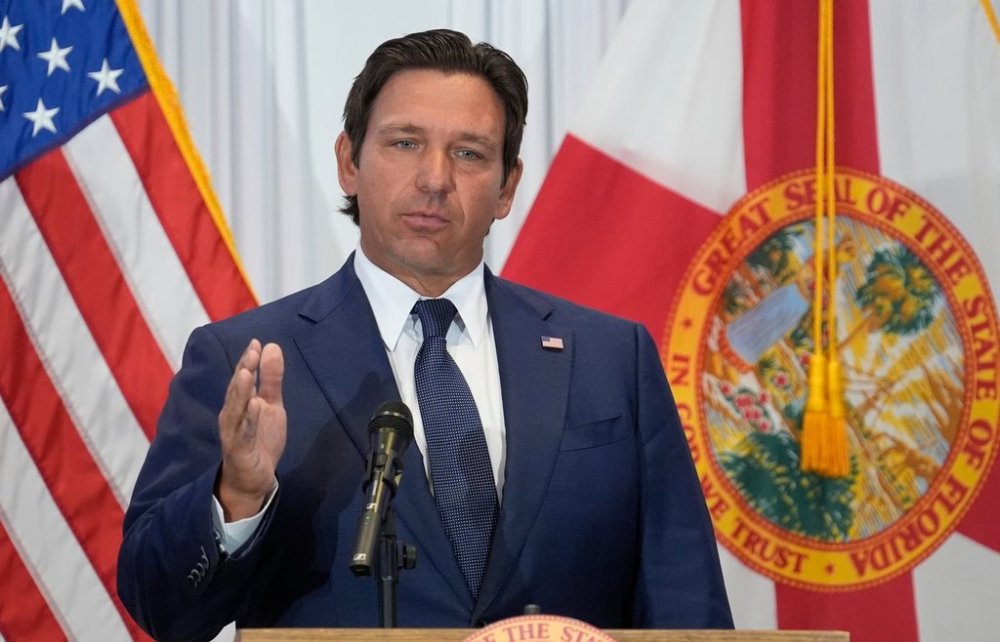Florida takes early steps to advance recreational marijuana question to next year’s ballot
Advertisement
Read this article for free:
or
Already have an account? Log in here »
To continue reading, please subscribe:
Monthly Digital Subscription
$0 for the first 4 weeks*
- Enjoy unlimited reading on winnipegfreepress.com
- Read the E-Edition, our digital replica newspaper
- Access News Break, our award-winning app
- Play interactive puzzles
*No charge for 4 weeks then price increases to the regular rate of $19.00 plus GST every four weeks. Offer available to new and qualified returning subscribers only. Cancel any time.
Monthly Digital Subscription
$4.75/week*
- Enjoy unlimited reading on winnipegfreepress.com
- Read the E-Edition, our digital replica newspaper
- Access News Break, our award-winning app
- Play interactive puzzles
*Billed as $19 plus GST every four weeks. Cancel any time.
To continue reading, please subscribe:
Add Free Press access to your Brandon Sun subscription for only an additional
$1 for the first 4 weeks*
*Your next subscription payment will increase by $1.00 and you will be charged $16.99 plus GST for four weeks. After four weeks, your payment will increase to $23.99 plus GST every four weeks.
Read unlimited articles for free today:
or
Already have an account? Log in here »
TALLAHASSEE, Fla. (AP) — Florida elections officials have taken early steps under pressure from activists to advance a proposed initiative to legalize recreational marijuana to next year’s ballot, legal filings show.
The procedural move comes after the campaign behind the issue, Smart & Safe Florida, filed a complaint with the Florida Supreme Court, alleging that officials in Republican Gov. Ron DeSantis’ administration were trying to improperly block the measure from getting on the ballot in 2026.
In a Nov. 17 legal filing, Florida Secretary of State Cord Byrd argued that the lawsuit is now moot and should be dismissed. That’s after state officials issued a formal letter to Smart & Safe Florida and submitted the proposed ballot amendment to the state’s attorney general.

Those steps represent official confirmation that the campaign has gathered the hundreds of thousands of voter petitions needed to qualify for the ballot, triggering the process for the state Supreme Court to ultimately review the proposed amendment language. Those steps are required by state law in order for the issue to advance to the ballot.
The dispute follows a yearslong clash between progressive organizers seeking to amend the state’s constitution, and the conservative governor, who in 2024 used state money and his political influence to successfully campaign against efforts to legalize adult personal use of marijuana and expand abortion rights.
For years, Florida voters have turned to the citizens’ ballot initiative process to bypass the Republican-dominated Legislature and advance progressive policies such as raising the minimum wage and restoring the voting rights of people with felony convictions.
In May, DeSantis signed a law creating new hurdles for citizen-driven ballot initiatives, changes critics say would make it prohibitively expensive and effectively impossible for grassroots campaigners to get issues on the ballot. Since the passage of the law, a campaign to expand Medicaid in the state announced it’s delaying its push to get the question on the ballot until 2028.
___
Kate Payne is a corps member for The Associated Press/Report for America Statehouse News Initiative. Report for America is a nonprofit national service program that places journalists in local newsrooms to report on undercovered issues.

